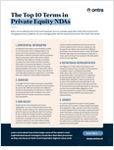The U.S. Supreme Court recently heard oral arguments in a critical case testing the right of citizens to bring suit in the name of the United States in order to recover damages from corporations or individuals that have cheated the government. By taking up the case known as Schindler Elevator, the high court is looking into whether a private citizen can secure information from a Freedom of Information Act request and use that information to form the basis of a qui tam or False Claims Act whistleblower lawsuit. The chamber also wants the court to rule that ignoring government contract requirements that the contractor deems unimportant should not be considered cheating the government.
The whistleblower in Schindler brought his case under the False Claims Act, which has proven to be an enormous benefit to the U.S. government and taxpayers. It effectively deputizes the eyes and ears of private citizens. And it provides added incentive to individuals to police corporate malfeasance by requiring the government to pay bounties from proceeds recovered through False Claims Act litigation.





